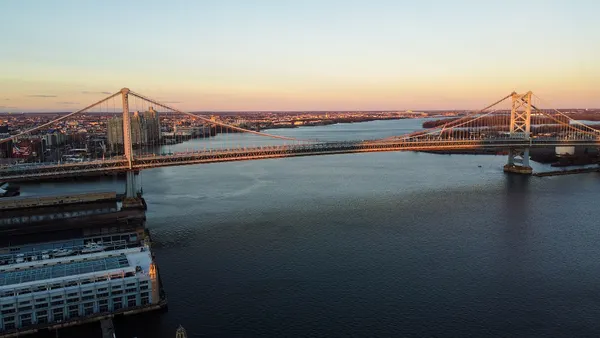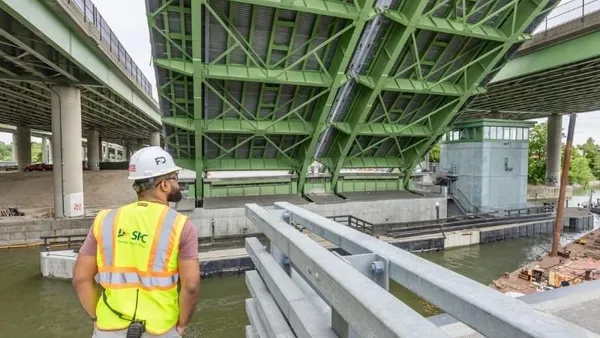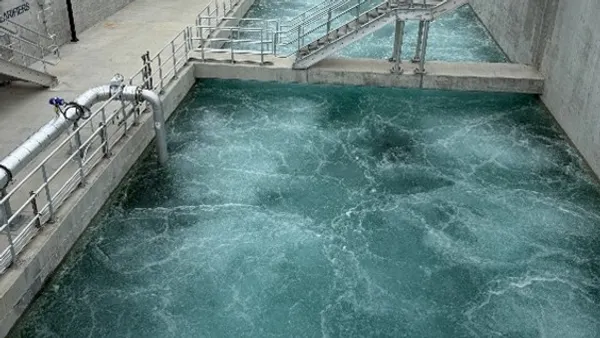Dive Brief:
- President Donald Trump could offer up a preview of his $1 trillion infrastructure plan during next week's State of the Union address, according to unnamed sources cited by Reuters. Contrary to comments he made to House Democrats in September, the plan currently being crafted reportedly will focus on private investment, as well as on local and state government financing, that could yield up $1.85 trillion.
- Of the $200 billion the White House has said would come from federal coffers to help jumpstart the plan, $100 billion would serve as grants to assist local governments that come up with their own funding. Approximately $50 billion would be spent on rural infrastructure; $25 billion on existing loan programs that encourage private investment; and another $25 billion would go toward transformative "American Spirit" projects like high-speed rail or reconstruction of the Hudson River tunnel.
- Still unknown is where the administration expects to come up with the $200 billion, a strategy which will likely be unveiled when the president releases his budget proposal next month. The president's advisers have floated the idea of a new federal gas tax and other driver charges, but the money could also be pulled from existing programs.
Dive Insight:
When Trump was elected in 2016, the president said he would finalize an infrastructure program within 100 days, but the administration was sidelined with issues of healthcare and tax reform, as well as immigration and foreign relations. The details of that $1 trillion infrastructure plan were supposed to be unveiled this month, but if the president only gives an overview his State of the Union address, it could be February before he releases details, The Hill reported.
Absent specifics from the White House, other groups have stepped forward to offer their own ideas about financing the country's massive infrastructure overhaul.
The U.S. Chamber of Commerce has suggested the federal government raise the federal tax on both gasoline and diesel by 25 cents a gallon, a proposal that would likely hit resistance from both sides of the aisle. When one of Trump's advisers suggested a seven-cent increase late last year, it wasn't long before Senate Minority Leader Chuck Schumer (D-NY) responded publicly that he would block any attempt to levy another tax on Americans. The gas tax hasn't seen an increase since 1993, but politicians have been reluctant to tap that resource for fear of voter backlash.













